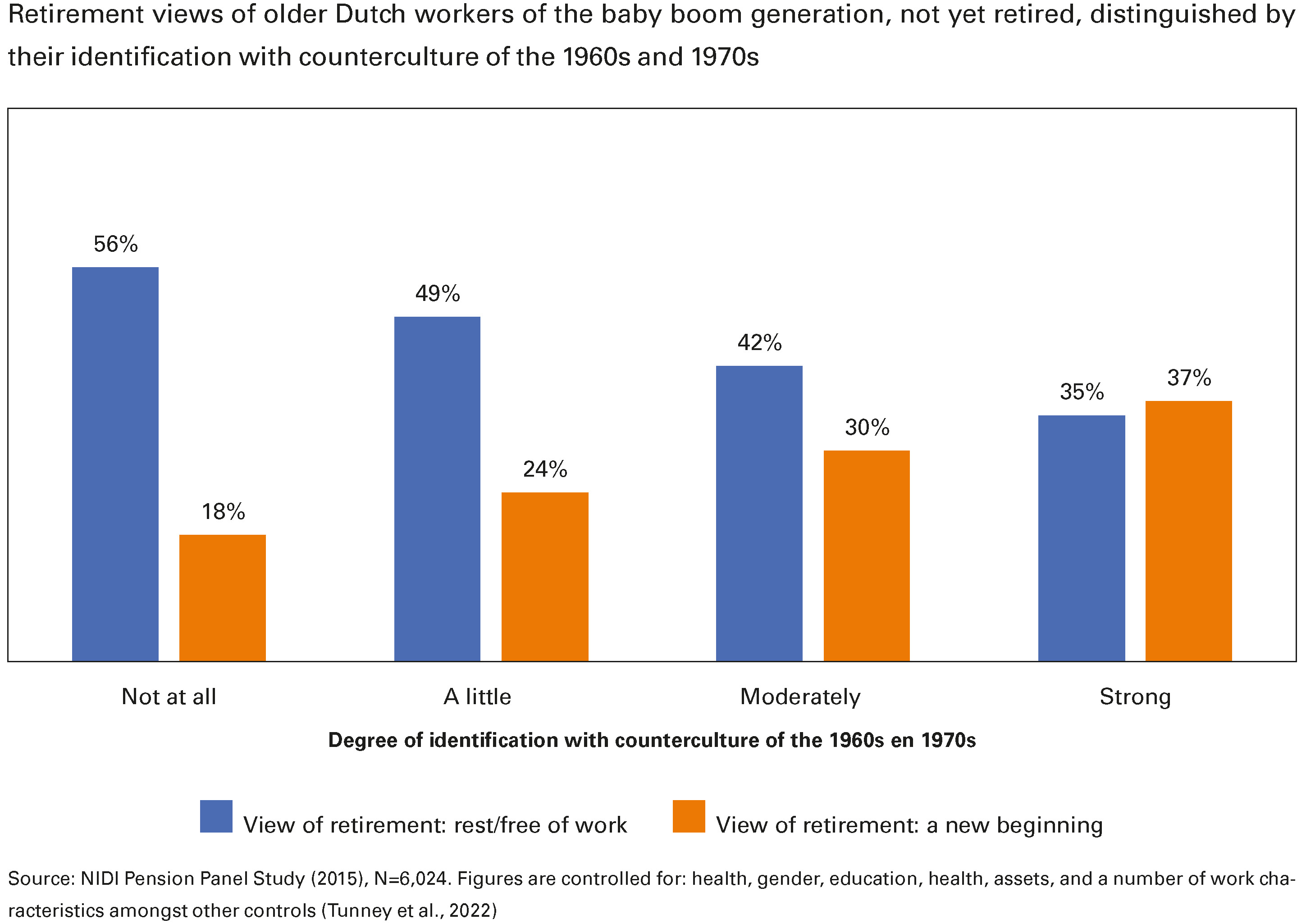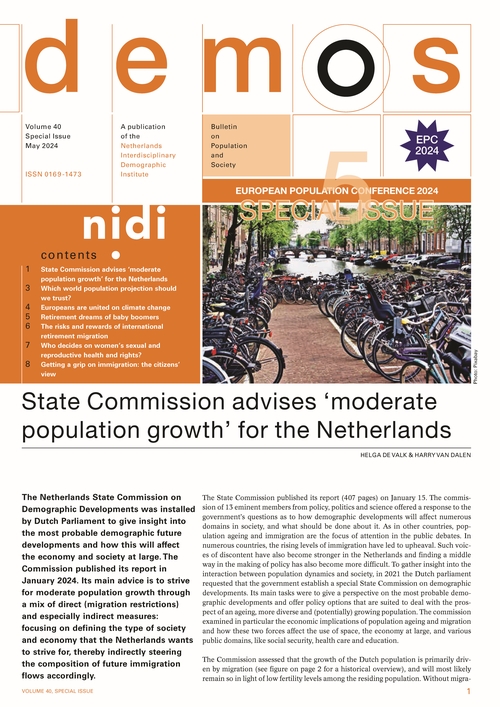The baby boom generation was born between 1945 and 1955. Following their early years spent in the shadow of the Second World War, they came of age during the 1960s and 1970s. This era ushered in profound social change, witnessing a revolution in attitudes and cultural norms in terms of music, sexuality, drugs, clothing, and politics. These changes were driven by countercultural movements of the time, such as the hippie movement and second wave feminism, amongst others. Having grown up during these revolutionary times the baby boomers themselves are widely viewed as having revolutionised the life course in the Netherlands. Baby boomers are therefore expected to continue this trend and take a different, more active, approach to retirement than preceding generations. But does this reflect reality as they see it?
Data from the NIDI Pension Panel show that about half of the older workers who have not yet retired (born between 1950 and 1955) indicated that, for them, retirement means ‘enjoying the fact that you are no longer working’. For approximately one fifth (21%), retirement is seen as a new beginning, where you ‘finally have time to develop yourself and learn new things’. One in eight (13%) viewed retirement as a time to continue working, but at a slower pace. For the rest, retirement was still unknown territory (10%), or something they preferred not to think about (4%). These results are in line with international research, where greater freedom and no longer having to worry about work are seen as the key advantages of retirement.
However, researchers are increasingly paying attention to the idea that social and cultural socialisation in youth continues to influence us even in later life. And we also put this idea to the test. Of the older workers in our study, about a quarter identified with the hippie culture of the 1960s and 1970s, 20 per cent identified with the protest movements, while only five per cent identified with the drug culture of that time. Those who identified with these countercultures of the 60s and 70s indeed had a different – more active – view of retirement. As shown in the figure, identification with countercultures (displayed on the horizontal axis from left to right) was associated with retirement views. Those who strongly identified with this counterculture as a young adult are much more likely to see their retirement as a new beginning (orange bar) than those who did not identify with these movements at all. Conversely, those who did not identify with countercultural movements in their youth were more likely to view retirement as a period of well-deserved rest after working life (blue bar), than those who identified strongly with countercultures in their youth.

Our results show that baby boomers cannot all be tarred with the same brush and there is significant diversity in the way Dutch older workers view retirement. However, all in all, those who broke with tradition in their youth seem less inclined to slow down, put their feet up, and follow more traditional views on retirement.
Orlaith Tunney, NIDI-KNAW/University of Groningen, e-mail: tunney@nidi.nl
Hanna van Solinge, NIDI-KNAW/University of Groningen, e-mail: solinge@nidi.nl
Literature
- Tunney, O. Henkens, K., and H. van Solinge (2022), Children of the revolution: The impact of 1960s and 1970s cultural identification on baby boomers’ views on retirement. Research on Aging. 44 (9-10), pp. 747-757.
- Maggiori, C., Nihil, R., Froidevaux, A., and J. Rossier (2014), Development and validation of the transition to retirement questionnaire. Journal of Career Assessment, 22(3), pp. 505-523.


